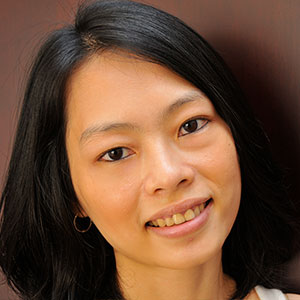No matter how much you love writing, there will be times when you are desperate for inspiration. And sometimes, the inspiration could come from the most unlikely of sources.
Last week, I received a call from a friend in Sarawak. He suggested that maybe it was timely to write about the role of an academic and also academic freedom.
But I told him that I had highlighted issues related to academic freedom numerous times in the past. Hence, I am not sure if this would be a good idea, as the readers might get bored.
A few days passed and here I am. I changed my mind and I decided to take stock and consider what an academic really is.
I visualised that the academic of the future would be known as more of a thought leader or professional thinker, rather than someone who is tied to an institution.
A career that is built along these lines could actually open up more space for freedom of thought. At the same time, it would allow for more opportunities to initiate work that would eventually contribute to society.
More importantly, it would allow for a much deeper understanding of actual problems in practice.
Do academics need to seek "permission" before we pen our thoughts and opinions?
To answer this, we should first comprehend the concept of academic freedom and why it is so crucial.
In this challenging political landscape, we definitely need some clarification of the idea of academic freedom.
A very simple rule: academic freedom is known as the freedom to teach and do research in any areas without pressure. In the meantime, with academic freedom, academics are able to disseminate new ideas no matter how controversial.
Academic freedom is therefore essential because it protects academics in two spheres: in their capacity as academics and citizens.
So, what does academic freedom protect you from?
It protects you from the approaches and positions you may take or defend, as well as the channels that are appropriate for you to deliberate on: certain issues or expressions of political views and so on.
In short, academic freedom protects academics from some restrictions to engage and debate their work, be it in class or in research.
Having elaborating what an academic is and why it is crucial to safeguard academic freedom, for that reason, we should appreciate the clash of competing ideas and embrace “all sides of the debate”.
This is because it is not only for the purpose of knowledge expansion. In the bigger picture, it is for the nation's benefit and this is exactly why “unwelcome” opinions need to be heard rather than silenced.
After all, academics never cease to learn and investigate. They never stop expressing opinions and exploring new frontiers. This is what makes the role of academics critical. – March 30, 2015.
* This is the personal opinion of the writer or publication and does not necessarily represent the views of The Malaysian Insider.


Comments
Please refrain from nicknames or comments of a racist, sexist, personal, vulgar or derogatory nature, or you may risk being blocked from commenting in our website. We encourage commenters to use their real names as their username. As comments are moderated, they may not appear immediately or even on the same day you posted them. We also reserve the right to delete off-topic comments